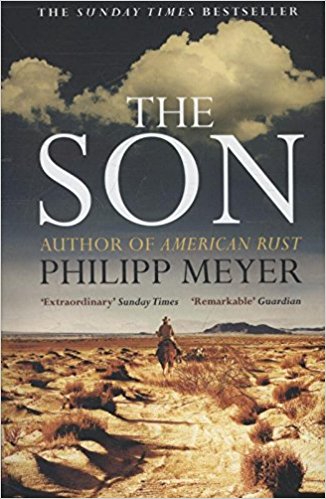INTERVIEW: Jim Meigs and Richard Davies talk to Jonathan Haidt about his new book (with Greg Lukianoff), The Coddling of the American Mind: How Good Intentions and Bad Ideas Are Setting Up a Generation for Failure
L.A. TIMES: No, anonymous Trump official, you’re not ‘part of the resistance.’ You’re a coward
The second hand always departs.
The minute hand always arrives.
The hour hand claps at our lives
With one hand that stops and starts.
We climb the red stone clock tower,
Stare out slits in its white faces.
Its hands are minute and hour,
No second, which just erases,
Like the one on my mantelpiece,
Always threatening my decease.
We need a hand for time to come,
One that whirls while always slowing,
That tells us (since the hour's dumb),When we'll be without our knowing.
An online museum showcases web design trends between the years 1995 and 2005.The Web Design Museum
Journalism's new bottom line: Impact. Co-presented by the Walkley Foundation. Share. This talk will be an ...
In a world disrupted by technology and global shifts, truth and quality journalism have never been more important. While legacy media brands work to adjust, new models for journalism are emerging. From projects built on collaborations that span borders and media organisations, to newsrooms funded by philanthropy. A common thread of this brave new world is public interest journalism, where the bottom line is less about dollars and more about impact.
In a conversation presented by the Walkley Foundation and the University of Sydney, hear from special guest Robert J Rosenthal about how some of these new models are working in the US. Robert will be in conversation with Alice Brennan, the Pulitzer Prize-winning executive producer of ABC’s Background Briefing; with the discussion moderated by the University of Sydney’s Gerard Goggin. Don’t miss this timely insight into the power and importance of public service journalism and the new culture underpinning it.
In a conversation presented by the Walkley Foundation and the University of Sydney, hear from special guest Robert J Rosenthal about how some of these new models are working in the US. Robert will be in conversation with Alice Brennan, the Pulitzer Prize-winning executive producer of ABC’s Background Briefing; with the discussion moderated by the University of Sydney’s Gerard Goggin. Don’t miss this timely insight into the power and importance of public service journalism and the new culture underpinning it.
How Storyful Powered Award-Winning Journalism for Media Companies Ahead of the 39th Annual News Emmy Awards. Diana Gonimah
Internet memes can be good for people when they help to normalize mental health struggles
↩︎ The Verge
PCWorld: “Choosing the right virtual private network (VPN) service is no simple task. A VPN should keep your internet usage private and secure, but not every service handles your data in the same way. Just look at the critiques of notable computer security expertsand online pundits to understand the challenge. (Want to know more about VPNs and what they can and can’t do? Skip down to our “What is a VPN?” section.)…” Good article, good reviews and recommendations.
Confessions of a superyacht stewardess CNN. J T McPhee: “What they do with all that money.”
 Philipp Meyer, The Son
Philipp Meyer, The Son
“It was prophesied I would live to see one hundred and having achieved that age I see no reason to doubt it. I am not dying a Christian though my scalp is intact and if there is an eternal hunting ground, that is where I am headed. That or the river Styx. My opinion at this moment is my life has been far too short: the good I could do if given another year on my feet. Instead I am strapped to this bed, fouling myself like an infant.”
Humans and Bears - WRAL
Hyperpolyglots: The Mysterious Brains Of The People Who Can Speak A Dozen Or More Languages
Judith Thurman (who speaks only three languages and came to grief with Vietnamese) meets with several of these savants to find out what (including any special neurological features) makes them tick.
RICHARD FERNANDEZ: Enter The Labyrinth: “Today’s librarians no longer operate out of ivy covered buildings in bucolic campuses with collections of a few millions. They now operate on an unimaginably gigantic scale using hardware scattered across continents. For the most part the public don’t even know who they are. Yet these librarians wield enormous power: the effect of their decisions on access, erasure or alteration of digital data are identical in impact to fire and earthquake on earlier paper.”
RICHARD FERNANDEZ: Enter The Labyrinth: “Today’s librarians no longer operate out of ivy covered buildings in bucolic campuses with collections of a few millions. They now operate on an unimaginably gigantic scale using hardware scattered across continents. For the most part the public don’t even know who they are. Yet these librarians wield enormous power: the effect of their decisions on access, erasure or alteration of digital data are identical in impact to fire and earthquake on earlier paper.”
Who wrote the anonymous New York Times op-ed on Trump?
It
was a metaphoric Molotov, a middle finger, a knife in the back.
Naturally, it emerged from the "Deep Throat" ether just after 4pm.